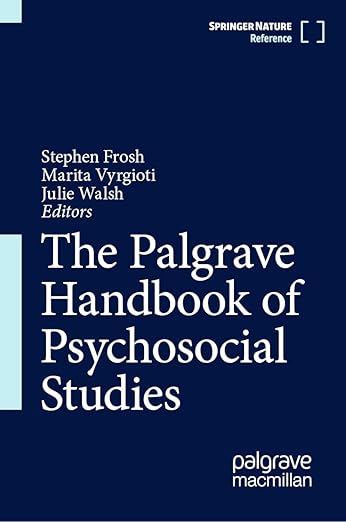Ethical Relationality, Precarity, and Vulnerability: ‘a way of facings things without fear’
Publication Announcement by Simone Drichel (New Zealand)
Drichel, S. (2024). Ethical relationality, precarity, and vulnerability: ‘a way of facings things without fear.’ In S. Frosh, M. Vyrgioti, & J. Walsh (Eds.), Palgrave handbook in psychosocial studies (pp. 411–436). Palgrave Macmillan.

Building on the assumption that psychic and social processes are intimately intertwined, this essay enquires into the psychosocial conditions of possibility – and impossibility – for social justice: Who must we be, if social justice is to become possible? The essay utilizes the resources afforded by Levinasian ethics to suggest that our capacity for ethical responsiveness is grounded in a primordial vulnerability to the other’s most profound appeal not to let them face death alone, “or else risk becoming the accomplice of that death.” Turning to Judith Butler’s work on the unequal distribution of precarity and grievability, I suggest, however, that, inasmuch as we routinely respond to (some) others’ precarious existence with ethical indifference, we do indeed repeatedly become “accomplice(s) of that death.” What accounts for these refusals of responsibility?
Drawing on Jessica Benjamin’s discussion of the fantasy that “only one can live,” I argue that what Stephen Frosh calls a capacity for “endurance” – “a way of facing things without fear” – is a vital component of ethical responsiveness.
link.springer.com/referenceworkentry/10.1007/978-3-030-61510-9_14-1#DOI

Simone Drichel, Ph.D.
Dunedin, New Zealand
Email Simone Drichel

